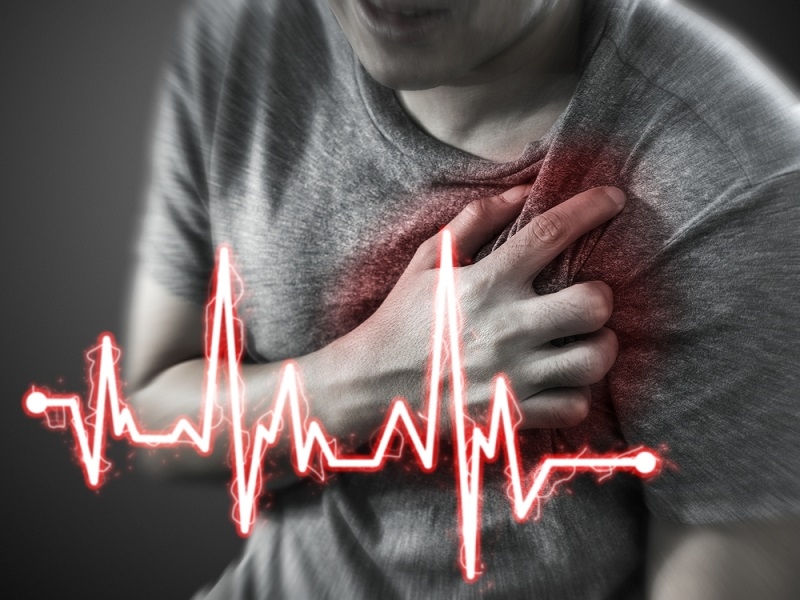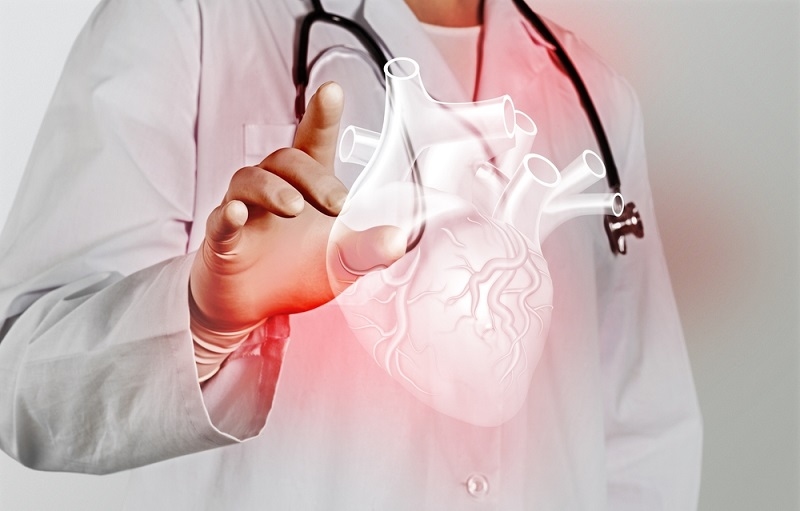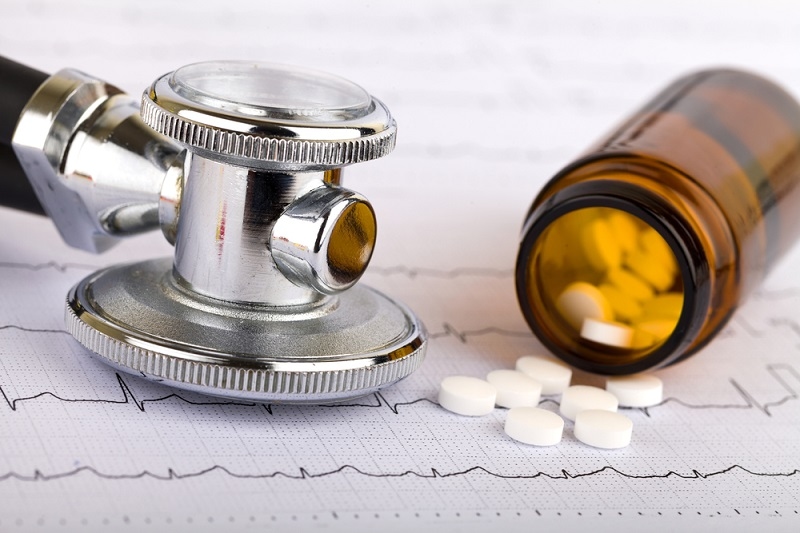Learn The Effective Heart Attack Treatment And Medications

The severity of problems that the human body faces in its lifetime gives a measure of its health and hygiene. These problems or conditions can be as minor as the flu or as significant as a heart attack. The vital organs of the human body pose more threats and are considered to care for the most. These include the central nervous system and the peripheral nervous system.
Regarding heart attacks, timely and effective treatment can mean the difference between life and death. Understanding the common heart attack types, available treatments, underlying causes, and medications can be crucial in saving lives. Awareness about heart attack treatment can help you protect yourself and others from a deadly experience.
Unraveling Common Heart Attack Types

The heart is the organ responsible for blood circulation and is connected to the major organs. Heart attacks have very different features than stroke, and knowing the difference is important. There are numerous reasons for a heart attack to occur, and to understand which incident means what, they are categorized into three types:
1. ST-Segment Elevation Myocardial Infarction (STEMI):
This type of heart attack is when either one of the coronary arteries faces a complete blockage. This results in the blood flow stopping in some regions of the heart. An ST-segment elevation on the ECG machine usually recognizes STEMI. Heart attack treatment here is immediate medical attention to restore blood flow and minimize heart muscle damage.
2. Non-ST-Segment Elevation Myocardial Infarction (NSTEMI):
This type of heart attack is when one of the coronary arteries has a partial blockage which causes the blood flow reduction to the heart and is not entirely stopped. NSTEMI can be recognized by ST-segment depression or T-wave inversion on an ECG. NSTEMI is also a serious condition that requires prompt medical intervention, although this heart attack treatment approach may differ from STEMI.
3. Silent Heart Attacks:
Silent heart attacks are a distinct category that often go unnoticed because they exhibit minimal or no symptoms. Unlike typical heart attacks with chest pain, shortness of breath, or discomfort, silent heart attacks may only be detected during routine medical checkups or ECG screenings. These attacks are equally damaging to the heart and carry significant health risks, underscoring the importance of regular health assessments.
Common Heart Attack Treatment Options:
Time is a critical factor in treating heart attacks, and the primary treatment options are essential for immediate availability to avoid risks and damage. There are different heart attack treatment methods for various heart attack causes. These treatments are crucial, and their knowledge can save you the time to reach the right medical professionals for help.
1. Percutaneous Coronary Intervention (PCI):
They are commonly referred to as Angioplasty, an effective treatment for blocked or choked coronary arteries. The process includes a catheter with a deflated balloon threaded through the blood vessels to the affected area. Once it reaches the site, the balloon is inflated to widen the artery and restore blood flow. A stent is placed after the inflation of the balloon to keep the route open, reducing the risk of re-blockage.
2. Coronary Artery Bypass Grafting (CABG):
CABG is the next option if the PCI or angioplasty is impossible or has complications. This heart attack treatment procedure involves taking a healthy blood vessel, typically from the leg or chest, and grafting it onto the coronary artery to bypass the blocked segment, restoring blood flow to the heart.
3. Thrombolytic Therapy:
This is the clot-busting therapy used in heart attack treatment which is the alternative when PCI or CABG does not work. The process involves administering medication to dissolve blood clots in the coronary arteries. Although it carries certain risks and potential complications, it is less commonly used than other treatments.
4. Therapeutic Hypothermia:
Heart attack can cause the body's metabolic demand to increase to a level that could also damage the brain. This heart attack treatment reduces the body temperature to lower the body's metabolic needs, protecting the brain and other organs from damage during resuscitation efforts.
Also Read: Healing Hearts: Navigating Life After a Heart Attack
Exploring Types of Medications for Heart Attacks

Heart attack treatment does not just involve removing the blockages or avoiding muscle damage. It also comes with the necessary medication that the patient needs to consume to keep the conditions like clotting, cholesterol, blood pressure, and others in control. Below are some of the commonly prescribed medications in heart attack treatment:
1. Antiplatelet Agents:
Antiplatelet drugs are the ones that prevent blood clotting by inhibiting platelet aggregation. These drugs, like aspirin, are commonly prescribed to reduce the risk of clot formation in the arteries, thus preventing heart attacks and strokes.
2. Anticoagulants:
Anticoagulants also prevent clotting by stopping the existing clots from growing bigger. Drugs like heparin and warfarin are prescribed when the clotting cannot be avoided through other means.
3. Beta-Blockers:
Beta-blockers are the drugs that control blood pressure levels and bring the heart rate to steady by blocking the adrenaline. They help decrease the workload on the heart, making them helpful in managing heart attack patients and various heart-related conditions.
4. ACE Inhibitors:
ACE inhibitors dilate blood vessels and lower blood pressure by inhibiting the action of angiotensin-converting enzyme (ACE). They are commonly prescribed to patients with heart failure or after a heart attack to improve heart function and outcomes.
5. Statins:
Statins are lipid-lowering medications that help reduce cholesterol levels in the blood. By lowering LDL cholesterol, they contribute to slowing down or halting the progression of atherosclerosis, reducing the risk of heart attacks and other cardiovascular events.
The Dynamic Duo: Unraveling Dual Antiplatelet Therapy (DAPT)
At times the heart attack treatment also includes Dual Antiplatelet Therapy to prevent the recurrence of attacks. There are two types of medications involved in the process. Aspirin acts as the cornerstone inhibiting platelet activation. P2Y12 Inhibitors work in tandem with Aspirin to further reduce the risk of blood clot formation. Below are the functions of the medications in the therapy:
1. Aspirin:
Aspirin is the foundational component of Dual Antiplatelet Therapy (DAPT). Its properties help prevent blood clotting by inhibiting the action of platelets. Aspirin is widely used with other medications after specific cardiovascular procedures with stent placement to reduce the risk of stent-related blood clotting and subsequent heart attacks.
2. P2Y12 Inhibitors:
P2Y12 inhibitors act as supportive medication with Aspirin to reduce the platelet aggregation responsible for clotting. Many types, like clopidogrel, ticagrelor, and prasugrel, inhibit blood clot formation. They protect against stent-related complications and reduce the risk of recurrent heart attacks in patients with acute coronary syndromes.
Suggested Read: Heart Attack Recovery: Embracing A Journey To Wellness
Conclusion:
Raising awareness about heart attack treatment and seeking immediate medical attention is essential as we move forward. Proper education, lifestyle changes, and adherence to prescribed medications can significantly reduce the risk of heart attacks, ultimately leading to healthier hearts and longer lives for at-risk individuals. Together, let us work towards a world where heart attacks are treatable and preventable, saving countless lives.
This content was created by AI
-1717753922-r.jpg)